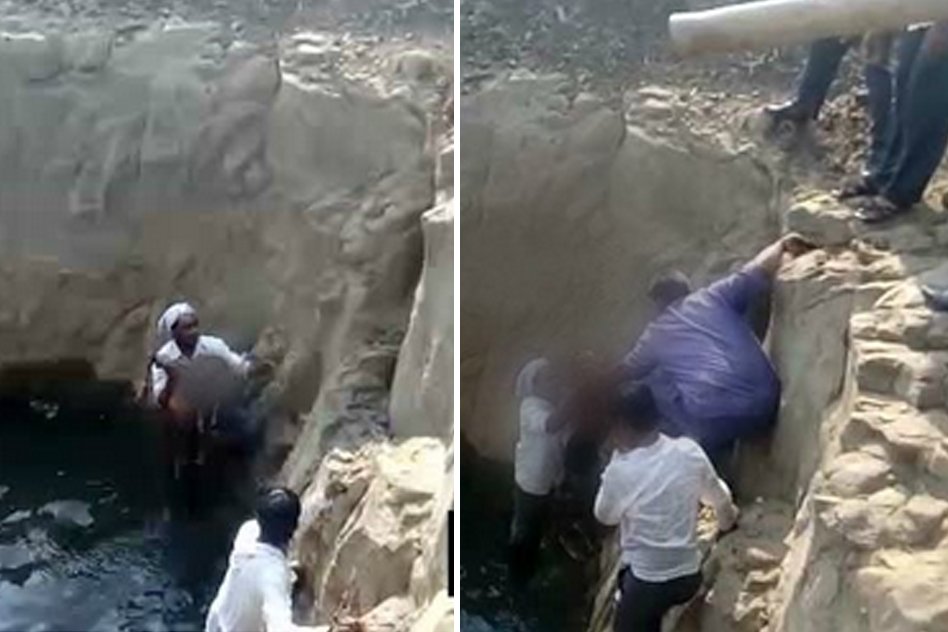
Image Courtesy: ANI News
Parched Maharashtra: 11-Year-Old Boy Dies Trying To Fetch Water From Well
23 April 2016 12:01 PM GMT
In a tragic incident, the parched state of Maharashtra yet again claimed a young life on Friday and this time, it was an 11-year-old boy, who fell inside a 60-feet well and drowned trying to fetch water from it.
The incident took place in Veeda village of Beed district. The villagers have manage to pull out the body of deceased Sachin Gopinath Kedar from the 60 feet well. According to police, the boy slipped and fell to his death.
Sachin’s death follows the death of another 12-year-old girl on Tuesday of heatstroke while fetching water from a village pump in Beed. Yogita Desai, a resident of Sabalkhed village, was dehydrated after attempting to fill water from a hand pump when the day’s temperature was 44 degrees Celsius.
11-year-old child died after falling into a well while fetching water in drought-hit Beed (Maharashtra) pic.twitter.com/gWVie5M4xx
— ANI (@ANI_news) April 22, 2016
Due to severe water scarcity in these parts of Maharashtra, children from families are compelled to make multiple trips to water tanks, hand pumps, and wells in the searing environment.
Instead of having 11 major dams in the area, all of them have dried up and there is hardly any water left. Water is supplied by tankers, which barely suffice the needs of every villager.
The situation is getting scarier day by day and the issue is we already had signs of this situation in past years, but we chose to ignore it. It is very important now that a mass awareness campaign asking citizens to take actions. If even now we decide to overlook this problem, we are doomed to suffer.
 All section
All section













